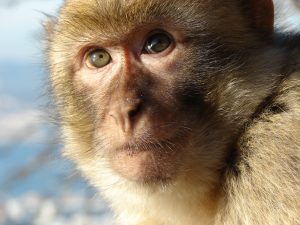A scientific research team of German and American scientists have reported that a new antibody produced in a laboratory has protected macaques monkeys from being afflicted with a strain of simian HIV. The potential for a vaccine is highly anticipated as the monkeys who were treated with the antibody were shielded from the virus for six months.
The monkeys in the experiment who did not receive the antibody treatments contracted the HIV within three weeks of being exposed. The research was published in the latest issue of Nature and the scientists believe that the results could have an untold impact with regard to humans being able to defend themselves against the virus.
While a true vaccine may be still a few years away, the scientists believe this discovery may lead to a passive type of immunization. Passive immunization is the process whereby antibodies are transferred from one person to another. The protection is not as long lasting as an active vaccine but this could be an encouraging step in the right direction. Such passive immunization has been used before with great affect. Antibodies were used to ward off Hepatitis A until a vaccine was introduced back in the 1990’s.
According to the United Nations, about 34 million people have died worldwide since the advent of HIV during the 1980’s. About 70 million have been infected with the virus. There is no cure yet but the virus has been stopped from replicating with antiretroviral drugs. The treatments, however, have serious side effects and can be rather expensive.
Scientists have only recently discovered that anywhere between 10-30 percent of those who are HIV positive have some naturally producing antibodies that seem to be keeping certain strains of the virus at bay. Three of these antibodies were used in the macaques monkey experiments. Each of the antibody types actually kept the virus at bay for between 12 and 24 weeks.
Just one injection seemed to shield the monkeys from contracting the virus for up to six months. This is having the effect that regular shots of antibodies may be the way to go prior to the invention of a long lasting vaccine.
PHOTO SOURCE: Wikipedia

